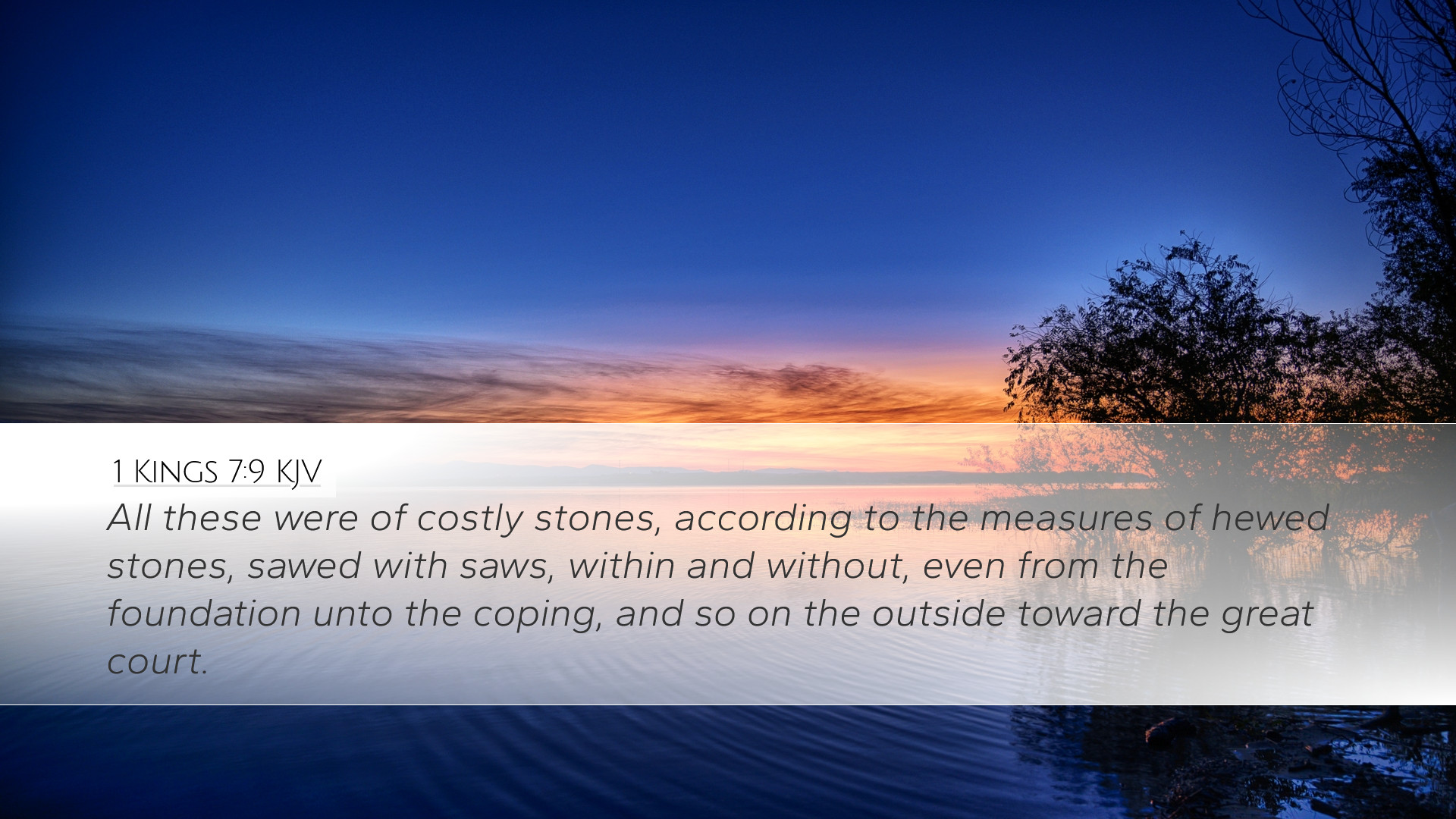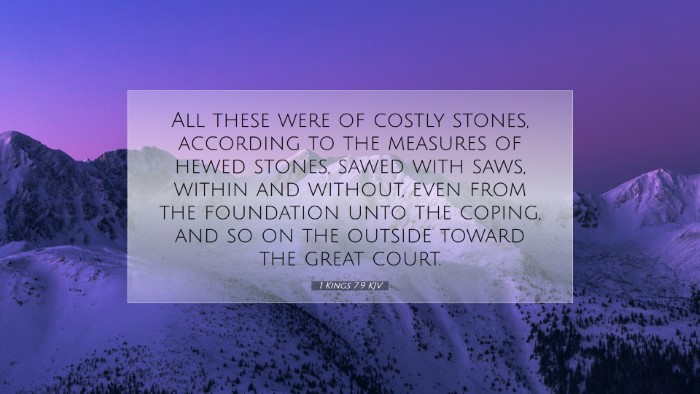Commentary on 1 Kings 7:9
1 Kings 7:9 states:
"All these were of costly stones, according to the measures of hewed stones, sawed with saws, within and without, even from the foundation unto the coping, and so on the outside toward the great court."
Introduction
This verse serves as a significant point in the description of King Solomon's architectural endeavors in the construction of the temple and his palace. The detailed mention of the materials and methods used illuminates not only the grandeur of the construction but also the reverence Solomon had for God in dedicating such costly efforts to His dwelling. The insights provided by esteemed commentators such as Matthew Henry, Albert Barnes, and Adam Clarke enrich our understanding of this verse.
Historical Context
Solomon's temple, a focal point of Jewish worship, represented not only a spiritual hub but also a monumental achievement in the kingdom of Israel. In this era, the careful selection of materials conveyed both aesthetic value and the importance of sacred spaces. Each component was meticulously considered to reflect God's glory.
Commentary Insights
Matthew Henry's Perspective
Matthew Henry emphasizes the significance of the materials used in this grand construction. He notes that:
- The costly stones signify the value placed on God's house, implying that offerings to God should be the best of what we have.
- Henry points out the craftsmanship involved, highlighting that the stones were hewed and sawed to precision.
- He further discusses how the labor involved reflects diligence and dedication in serving God, marking the importance of quality in worship and service.
Albert Barnes' Insights
Albert Barnes expands on the architectural aspects presented in this verse. He remarks:
- The term ‘costly stones’ not only implies the physical worth but also suggests a spiritual significance—they are fit for royal service.
- Barnes notes that the meticulous work of cutting and aligning these stones illustrates God's desire for order and perfection in worship.
- He highlights the measurements and precision of the construction as a testament to Solomon's wisdom and understanding, attributing this knowledge to divine guidance.
Adam Clarke's Commentary
Adam Clarke provides a detailed dissection of the verse, focusing on:
- The outer beauty reflected by the stones, which were not only functional but also a means to glorify God, imparting an impression of holiness.
- He posits that the great court served as an area of public assembly, suggesting that the design aimed to facilitate a connection between God and His people.
- Clarke emphasizes the symbolism inherent in these materials, indicating that the selected stones conveyed the message of God's eternal strength and the permanence of His covenant with Israel.
Theological Reflections
This verse prompts profound theological reflections:
- The Value of God's House: The use of valuable materials indicates a deep-seated belief that God's abode deserves the highest standards.
- Covenantal Significance: The meticulous planning and execution of the temple's construction reinforce God's promise to dwell among His people.
- Lessons in Diligence: The attention to detail serves as a reminder for believers to approach their service to God with care, craftsmanship, and commitment.
Application for Today
Contemporary reflections on this scripture yield several applications for pastors, theologians, and students alike:
- Quality in Worship: Just as Solomon used the finest materials, worship today should reflect our best offerings to God—be it in character, service, or resources.
- Commitment to God's Design: Engaging in church projects or personal ministries requires an awareness of divine purpose and the intention behind every effort.
- The Importance of Community: The inclusion of the great court reminds believers of the communal aspect of worship—engaging others in the service and love of God.
Conclusion
In summary, 1 Kings 7:9 encapsulates not just the physical aspects of construction but also the spiritual implications that resonate through generations. The comments from authoritative theologians illuminate a deeper understanding of our responsibilities in worship and service, reminding us that every effort dedicated to God should reflect excellence, reverence, and commitment.


